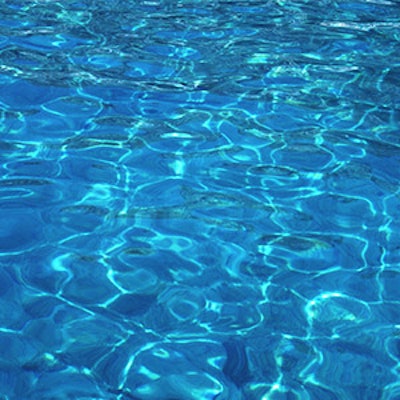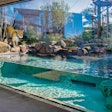
Pool heating is widely considered a luxury in the residential pool market. Sure, a pool heater isn't needed for the swimming pool to be clean and functional, but when you think about why people have swimming pools, it's not because they are a necessity. It's because they add to a pool owner's quality of life. As pool professionals, we're tasked with ensuring that our customers' quality of life is always improved through the perfect pool experience, and to do that, pool heating cannot be overlooked.
Swimming comfort is only a part of the benefit of installing a pool heater; another advantage is the ability for pool owners to use their pools for longer during the year. In many parts of the country, adding a pool heater will allow pool owners to increase their usage to year-round. Who wants to spend all that money on a beautiful new pool but not be able to use it for months out of the year because the water is too cold?
Put this in perspective for the homeowner, and many will warm to the idea of including a pool heater. And while there is no question that installing a pool heater is a significant investment for pool owners, selecting a heater that features recent technological advancements can help offset some of that investment through lower operational costs.
To ensure you're able to offer your customers the best pool heater value for their money, here are the four keys to delivering the perfect pool experience through pool heating.
Effective efficiency
The first thing to consider when evaluating heating options is the role the heater will play in pool system efficiency. When you mention "efficiency" while discussing heaters, most pool pros think of thermal efficiency, which measures how efficiently a heater warms the water. While this is an important part of evaluating the heater's effectiveness, it's only one part of the efficiency equation. Hydraulic efficiency, or how efficiently the pool pump pushes water through the system, is typically much more impactful on energy costs, and the heater you choose will affect the entire pool system's hydraulic efficiency.
Consider that for the average heated pool in the U.S., in which the filter pump runs for about 3,000 hours per year, the heater only runs for about 100 hours, or about 3 percent of the time. But it's affecting pool system hydraulics all the time, wasting energy even when it's not in use.
There are now heaters available with built-in bypasses that automatically allow water to circumvent the heat exchanger – which is the most restrictive part of the heater – when heat is not needed and direct water through the heat exchanger when it is heating. This optimizes hydraulic efficiency and keeps energy bills low for pool owners by minimizing the energy consumption of filtration pumps.
Minimal maintenance
We've all had those days. You're running late and thinking you'll just have a quick bowl of cereal before running out the door in the morning only to find you're out of milk. It's frustrating and you think, "Of course — only when I'm hungry and late do I run out of milk." There is nothing that will ruin a customer's perfect pool experience faster than expecting to host a daughter's birthday party only to find the heater broken and the pool full of cold water.
Pool heaters are a lot like a service truck. Both are large pieces of equipment with many complicated moving parts, and you know there is always a chance they will break down — but when they do, you want to make sure they can be quickly repaired for a reasonable cost. Keeping a regular maintenance schedule and proper chemical levels will help reduce breakdowns, but choosing a reliable heater that is designed with service in mind, with innovative features to reduce wear and tear, is a good path to preserving the pool owner's perfect pool experience.
Availability of fuel
While pool heaters are available in different sizes, a pool heater in many cases may require more gas than other common gas appliances. Some older gas lines aren't big enough to allow enough gas to be pumped to allow the heater to do its job. While newer style heaters are more forgiving, performance issues still occur. This is more common in more established neighborhoods where gas supply lines to homes were sized for the heating system and maybe a water heater. As these homes are remodeled and more gas appliances like fireplaces, clothes dryers and backyard barbeques are added, sufficient flow becomes an issue, and installing a new swimming pool heater can quickly tap out the gas line's capacity. Today's homeowners shouldn't have to choose between using their barbecue, clothes dryer or swimming pool at any given time. Make sure the gas line supports all the homeowner's gas-powered devices, because for many pool owners, the ideal pool experience means using the barbecue and pool heater at the same time.
Custom fit
While avoiding gas line issues is crucial, equally important is properly sizing the pool heater and achieving the proper water flow through it. A common mistake in pool heating is not understanding the amount of heat that will be required to overcome a pool's heat loss. Many factors affect heat loss, but the biggest is evaporation. Taking climate and wind conditions into account when selecting the appropriately sized heater for each specific swimming pool is critical. In areas that experience cooler weather or tougher wind conditions, consider adding a pool cover to prevent heat loss through evaporation.
Each pool system is different, with unique challenges and opportunities. Focus on these four key areas as a foundation to deliver the perfect pool experience through heating, and enable your customers to enjoy their pools, day or night, throughout the seasons.
Jeff Holmquist is the heating and hydraulic equipment product manager at Zodiac Pool Systems, Vista, Calif.
Comments or thoughts on this article? Please e-mail [email protected].











































